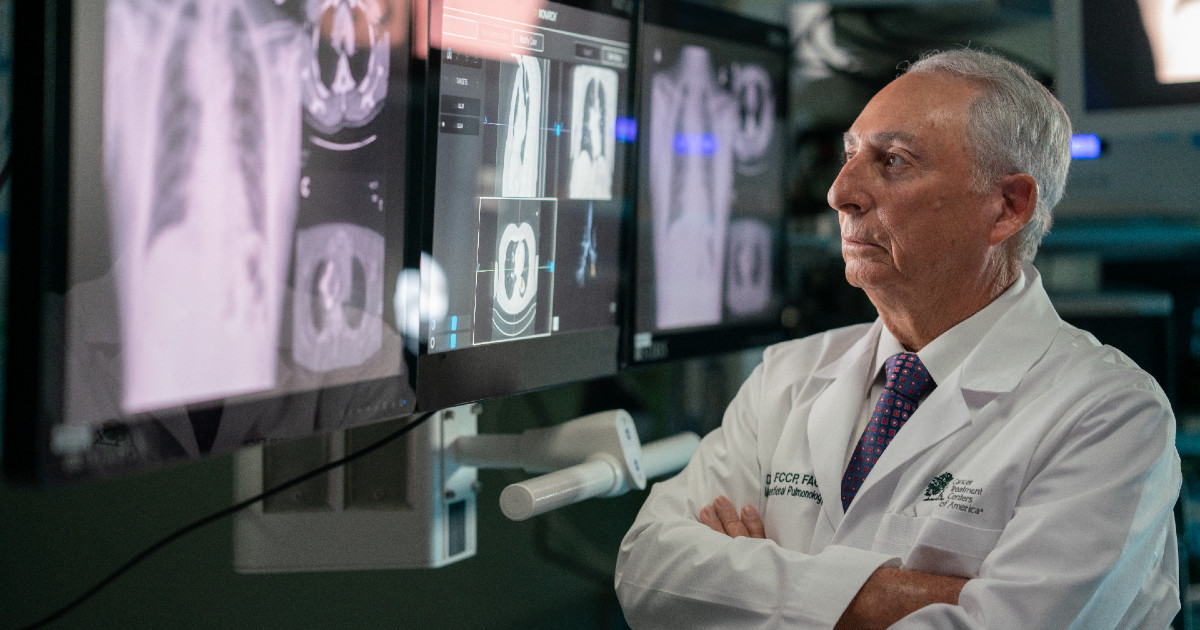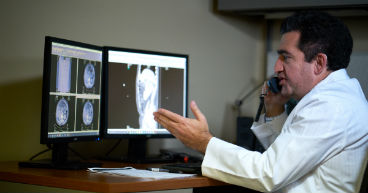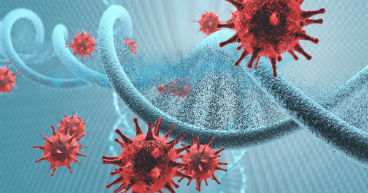
Since the beginning of the COVID-19 outbreak, cancer patients have been advised to take steps to help avoid exposure. Cancer and some cancer treatments may leave patients with suppressed or damaged immune systems, which may make them more vulnerable to viruses like COVID-19 and influenza. Some lung cancer patients face additional challenges as the COVID-19 continues to spread: Those whose lungs have been damaged by certain treatments or underlying illnesses, such as chronic lung disease, have a higher risk of experiencing even more difficult symptoms and complications if they contract the virus.
“COVID-19 affects the lung and causes severe inflammation and pneumonia,” says Shayma Master Kazmi, MD, a Medical Oncologist and Hematologist at our Philadelphia hospital. “Underlying lung dysfunction increases your risk of worse outcomes.”
Also, many lung cancer patients may have developed the disease after smoking tobacco, potentially adding additional layers of existing conditions, such as COPD, that may make them more vulnerable to severe COVID-19 symptoms. “Some patients with lung cancer have diminished lung function, and many have a history of smoking, so they are more likely to get sicker,” Dr. Kazmi says.
The U.S. Centers for Disease Control and Prevention (CDC) continues to update the list of symptoms COVID-19 patients may experience. Its latest update says common symptoms of the infection include a cough and shortness of breath or at least two of the following:
- Fever
- Chills
- Repeated shaking with chills
- Muscle pain
- Headache
- Sore throat
- New loss of taste or smell
Cancer, COVID-19 and the lungs
Lung cancer and COVID-19 are very different diseases, but they both attack the lungs and may cause permanent lung damage.
Coronaviruses are relatively common and can lead to respiratory illnesses, including colds. Some coronaviruses, including COVID-19, may cause more serious respiratory illnesses that can lead to pneumonia. Early research suggests that COVID-19 may leave patients with lesions or scars on their lungs and diminish their lung capacity.
In lung cancer patients, tumors or lesions in the lungs may block air passages, making it difficult to breathe. Treatment for lung cancer may require surgery to remove all or part of a diseased lung. Radiation therapy may also damage some lung tissue.
While cancer patients in general are at a higher risk for developing an infection if exposed, there is no evidence that damage caused specifically by lung cancer or treatment increases the risk of contracting COVID-19. However, Dr. Kazmi says, “By virtue of the fact that certain lung cancer patients have diminished lung function, they are likely to have a worse prognosis with the novel coronavirus.” And since COVID-19 is a relatively new strain of the coronavirus, there is no data on whether the virus or the damage it may cause increases cancer risk later on. “This is a brand-new virus, and carcinogenesis takes years to evolve and study,” Dr. Kazmi says. “We will be monitoring for long-term effects of COVID-19.”
What should lung cancer patients do?
Patients diagnosed with any cancer type or other serious diseases should take precautions to decrease the risk of exposure, including:
- Washing your hands and face frequently with soap and water for at least 20 seconds
- Avoiding crowds
- Avoiding people who sick or have been exposed to those who are
- Not sharing food, cups, dishes, towels or other items
- Keeping your hands away from your eyes, nose or mouth
“Patients with comorbidities such as chronic lung disease, heart disease and diabetes are at higher risk from complications from COVID-19,” says Jeffrey Metts, MD, Chief of Medicine at our Atlanta hospital. “Social distancing and prevention is a key strategy to prevent exposing patients with cancer to COVID19.”
If you are in active treatment and are concerned about how the COVID-19 situation may impact your care, please contact your care team.
Learn more about what cancer patients need to know about COVID-19.



